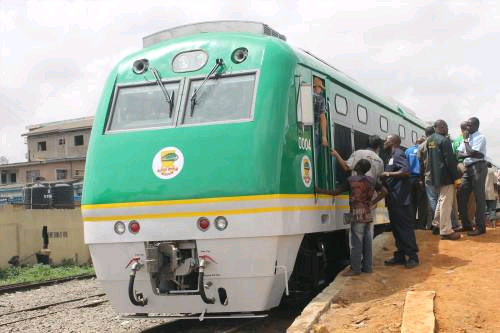The Nigerian Government has revealed its ambitious plan to undertake a major upgrade of the Abuja Rail Mass Transit (ARMT) System, marking a significant step towards enhancing the capital city’s transportation infrastructure. The contract, valued at N5 billion, was announced by Mr. Olusade Adesola, the Permanent Secretary of the Federal Capital Territory Administration (FCTA), on Friday. The project is set to be executed by the China Civil Engineering Construction Corporation Ltd (CCECC) and is projected to be completed within a span of 12 months.
The primary objective of this comprehensive upgrade is to restore and revitalize the crucial rail transportation system, often described as the “lifeblood of Abuja city.” Recognizing the pivotal role that the Abuja light rail plays in mitigating transportation challenges and facilitating mobility for the city’s residents, Mr. Adesola emphasized the significance of this project.
The disruption caused by the COVID-19 pandemic necessitated a temporary shutdown of the rail system, during which the equipment faced damage due to vandalism. Addressing these setbacks, Mr. Adesola expressed the government’s commitment to not only repairing and replacing the damaged equipment but also enhancing the overall security infrastructure of the ARMT System. He highlighted that contracts for security provision have been awarded, underlining the determination to safeguard this invaluable asset against further acts of vandalism.
The rehabilitation initiative encompasses a comprehensive approach, involving the repair and replacement of equipment, the modernization of facilities, and the implementation of robust security measures to preempt future threats. The government’s objective goes beyond mere physical repairs; it symbolizes the city’s resilience and the commitment to citizens’ well-being.
Mr. Joseph Akinteye, the Director of Transportation at the FCTA, offered insights into the project’s scope. He explained that the rehabilitation efforts will cover Lots 1 A and 3, spanning a distance of 45.245 kilometers. The ARMT System initially had a planned length of 77.775 kilometers, of which only 45.245 kilometers were completed and commissioned in 2018. The rehabilitation endeavor is anticipated to reinstate the full services of the Metro Line, benefitting both residents and the city’s economic prospects.
This development comes at a time when Nigerian lawmakers and administrators are exploring alternative energy solutions to alleviate the impact of the fuel subsidy removal on citizens. President Tinubu’s proposal for 3000 gas-powered buses, along with announcements from Delta and Ogun states regarding plans for electric vehicles, signifies a collective commitment towards sustainable and forward-looking transportation solutions.










